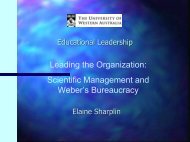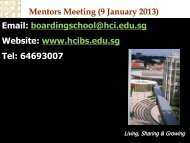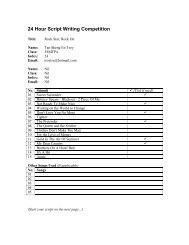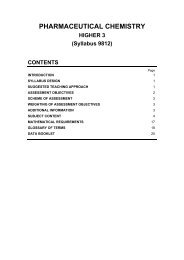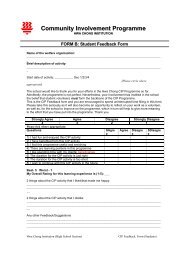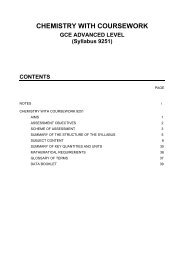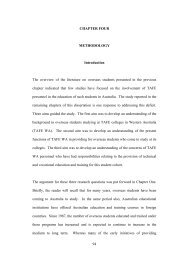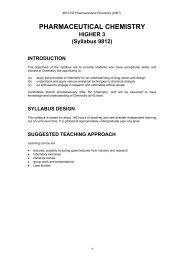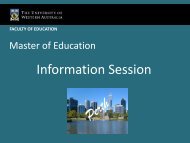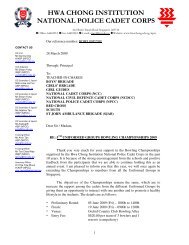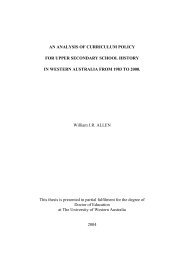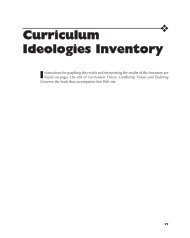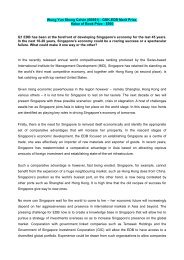EDUC 8678 - Pre-reading - Curriculum and its discontents
EDUC 8678 - Pre-reading - Curriculum and its discontents
EDUC 8678 - Pre-reading - Curriculum and its discontents
You also want an ePaper? Increase the reach of your titles
YUMPU automatically turns print PDFs into web optimized ePapers that Google loves.
172<br />
MAXINE GREENE/CI<br />
DWAYNE. "The morbid curriculum field: Its wake <strong>and</strong> our work."<br />
HUEBNER,<br />
<strong>Curriculum</strong> Inquiry 6, no. 2 (1976): 153-176.<br />
MCNEIL, JOHN D. <strong>Curriculum</strong>: A comprehensive introduction. Toronto: Little,<br />
Brown, 1977.<br />
PINAR, WILLIAM F. <strong>Curriculum</strong> theorizing. Berkeley, Calif.: McCutchan, 1975.<br />
. "Notes on the curriculum field 1978." Educational Researcher 7, no. 8<br />
(1978): 5-12. (a)<br />
."The reconceptualization<br />
of curriculum studies." <strong>Curriculum</strong> Studies 10,<br />
no. 3 (1978): 205-214. (b)<br />
SCHWAB, JOSEPH J. "The Practical: A language for curriculum." In Science,<br />
curriculum, <strong>and</strong> liberal education, edited by Ian Westbury <strong>and</strong> Neil J. Wilkof.<br />
Chicago: University of Chicago <strong>Pre</strong>ss, 1978.<br />
YOUNG, MICHAEL<br />
F. D. Knowledge <strong>and</strong> control. London: Collier-Macmillan, 1971.<br />
Response to Philip Jackson<br />
Maxine Greene, Teachers College, Columbia<br />
University<br />
When Susan Sontag treated "illness as metaphor," she did so to clarify the<br />
perspectives through which we see tuberculosis <strong>and</strong> cancer. Not only have<br />
the traditional metaphors falsified the actualities of those diseases, she<br />
said, but in some fundamental way they are unjust. Philip Jackson<br />
examines death as metaphor for talking about curriculum; he also<br />
questions the notion of "field." His intention, too, appears to be to clarify;<br />
he wants to show the impact of reification, to break through various kinds<br />
of mystification, to recover a way of speaking that might make a difference<br />
in the schools. Displaying (with some delectation) the fictions created by<br />
the participants in the curricular debate, he does not penetrate the heart of<br />
the matter, or so it seems to me. Unlike Susan Sontag, he does not have a<br />
clear sense of the actuality the metaphors obscure, nor does he communicate<br />
a sense of his own evident commitment to effecting needed change. Instead,<br />
he implies that we are all actors in some strange fictional domain.<br />
Something similar happens with respect to "Discontents." A reader is<br />
led to associate with Sigmund Freud's Civilization <strong>and</strong> Its Discontents <strong>and</strong><br />
Freud's stress on the fragility of culture in the face of our "instinctual<br />
urgencies." That book ended with an attribution of the dejection of the<br />
modern age to the recognition that human beings had so perfected their<br />
techniques of mastery <strong>and</strong> control that they were in a position to<br />
"exterminate one another to the last man." But Jackson suggests that the<br />
"spirit of discontent" he finds in educational discussion has been<br />
concocted deliberately (in East Anglia, or in London, or in Hershey,<br />
? 1980 by The Ontario Institute for Studies in Education. Published by John Wiley & Sons, Inc.<br />
CURRICULUM INQUIRY 10:2 (1980) 0362-6784/80/0010-0172$1.00



